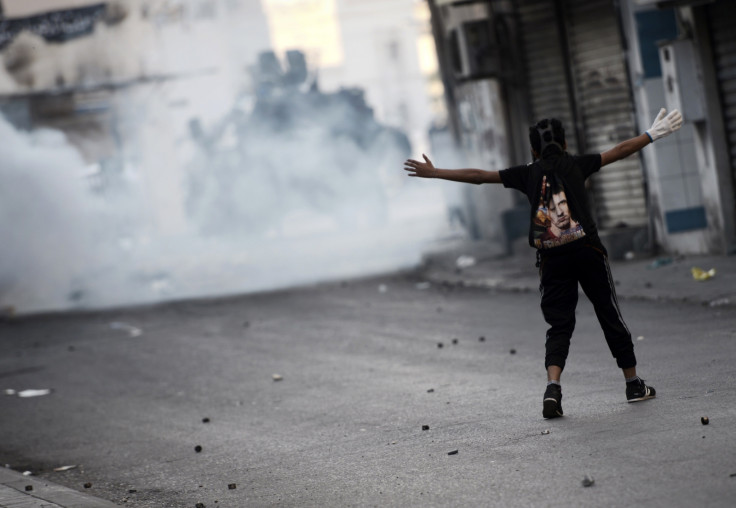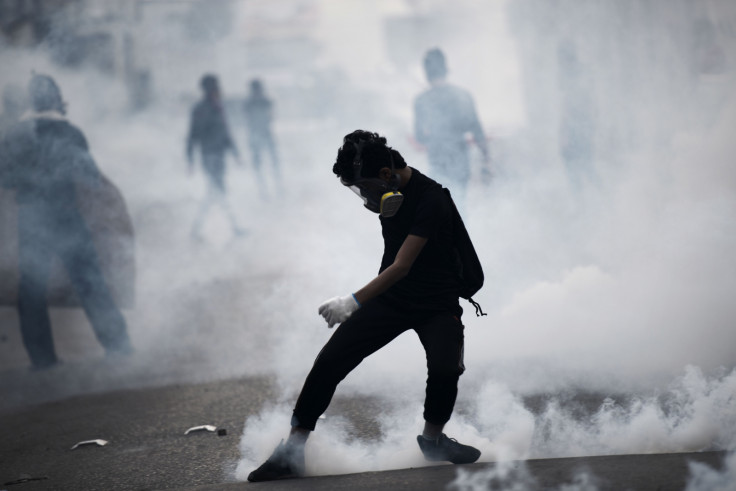Bahrain protests demand release of opposition leader Sheikh Salman
Clashes erupt in Gulf kingdom's villages and capital in renewed sectarian tensions

Pro-democracy protests in Bahrain over the detention of the country's opposition leader, Sheikh Ali Salman Ahmed Salman, have reached the fifth day, as police and demonstrators clash in Sitra and other villages.
Sheikh Salman, head of the Shi'ite al-Wefaq Islamic Society, was arrested on Sunday and charged with seeking to promote "political change using illegal forceful means and threats", according to a government statement.
The 49-year-old Shi'ite figure led a protest rally against elections in November, which was boycotted by the opposition due to the lack of progress in democratic reforms in the kingdom.
Salman's detention sparked protests in central Manama after prayers at the capital's Mumen mosque. Police used tear gas and batons against the demonstrators and arrested dozens of them.
Protests continued on Friday, with angry crowds demanding the release of Salman and holding the king, Hamad al-Khalifa, responsible for his arrest:
Angry protest in #Sitra demanding the release of Shaikh Ali Salman and holding the king the responsibility #Bahrain pic.twitter.com/eQKLrYqR9A
— S. Yousif Almuhafdah (@SAIDYOUSIF) January 2, 2015
Other protesters burned the British and American flag for supporting the Gulf regime:
Urgent : Protesters now burning the #British flag & the #American Flag in #Sitra for supporting the dictator #Bahrain pic.twitter.com/ECwpBCyV7w
— S. Yousif Almuhafdah (@SAIDYOUSIF) January 2, 2015
The US State Department warned that Salman's detention could exacerbate sectarian tensions in the island kingdom.
"Opposition parties that peacefully voice criticism of the government play a vital role in inclusive, pluralistic states and societies," the State Department said in a statement
"We are concerned that this action against a senior leader of the opposition will only inflame tensions," it said.
Salman was questioned again on Thursday and confronted with recordings he made. In one recording, he tells how someone proposed him to militarise the opposition movement – a proposal he rejected.
After the crackdown on the pro-democracy uprising in 2011, led by Saudi forces, Bahrain plunged deeper into sectarian conflict between the wealthy ruling Sunni minority and the Shi'ite majority.
King Hamad bin Isa Al Khalifa pledged to implement recommendations from an independent commission of inquiry, but reforms are progressing slowly and reconciliation talks have stalled. Violence between riot police and protesters is a weekly occurrence.
Violence between riot police and protesters is now a weekly occurrence.
Decrees approved by King Hamad include up to seven years in jail for criticising him. All protests, sit-ins and gatherings in the capital Manama are banned indefinitely.

Human rights activists such as Maryam al-Khawaja, and her sister Zainab have both recently received prison sentences for their pro-democracy activism.
Britain's relationship with Bahrain has come under scrutiny over the announcement of a judicial review into whether the king's son, Prince Nasser, can be prosecuted in the UK for allegedly torturing prisoners during a 2011 uprising. The controversy forced Prince Andrew to withdraw from a Bahraini-funded PR event in London.
A recent High Court ruling stated that Prince Nasser, a regular traveller to the UK, is not immune from prosecution for the alleged torture. However, the British government has recently announced the opening of a £15m naval base in the Gulf kingdom: news that was met with frustration and anger by human rights activists in the country.
Prominent Bahraini activist Nabeel Rajab, who was recently freed after spending two years in prison for taking part in "illegal gatherings" in the Gulf country, claimed on Twitter that the British base is a "reward for UK silence on human rights violations" in the country.
In an interview with IBTimes UK in July, just after his release, Rajab, president of the Bahrain centre of human rights (BCHR), said the Bahraini government "have bought the silence of the British government by increasing the business" since the start of the crackdown on peaceful protesters in 2011.
© Copyright IBTimes 2025. All rights reserved.




















